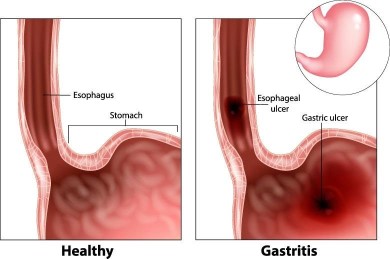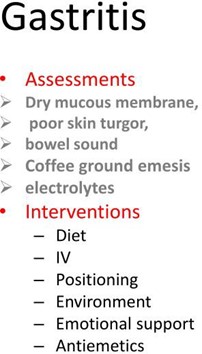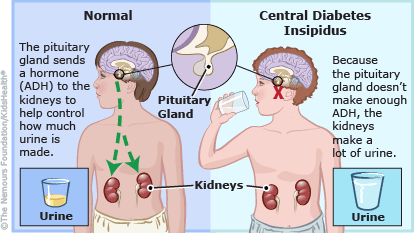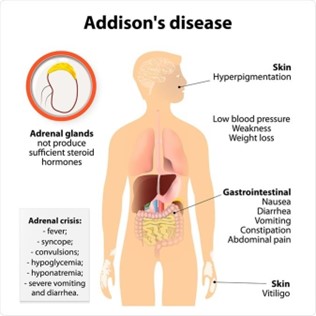A nurse is planning care for a client who has acute gastritis. Which of the following nursing interventions should NOT be included in the plan of care?
Provide three large meals a day.
Observe stool characteristics.
Evaluate intake and output.
Monitor laboratory reports of electrolytes.
The Correct Answer is A
Clients with acute gastritis are recommended to eat smaller, frequent meals instead of three large meals. This helps to reduce the workload on the digestive system and allows the stomach to heal. Therefore, option A is not a suitable nursing intervention for a client with acute gastritis.
Options b, c, and d are all appropriate nursing interventions for a client with acute gastritis. Observing stool characteristics can help to identify any bleeding or inflammation in the gastrointestinal tract, evaluating intake and output can help to identify any fluid imbalances, and monitoring laboratory reports of electrolytes can help to identify any imbalances that may occur because of vomiting or diarrhea.


Nursing Test Bank
Naxlex Comprehensive Predictor Exams
Related Questions
Correct Answer is A
Explanation
Excess fluid volume related to intake greater than output would be the most appropriate nursing diagnosis for a patient with symptoms of DI (diabetes insipidus). This condition results in excessive urine output and, as a consequence, can lead to dehydration and electrolyte imbalances. Therefore, monitoring and managing fluid volume is a priority for patients with DI.
Risk for impaired skin integrity related to generalized edema is more commonly associated with conditions that cause fluid retention such as heart failure, liver failure, or kidney disease, rather than DI.
Activity intolerance related to muscle cramps and weakness is a possible nursing diagnosis for patients with conditions that affect muscle function, such as muscular dystrophy or multiple sclerosis, but not specifically for DI.
Insomnia related to waking at night to void is more commonly associated with urinary frequency or nocturia due to conditions such as urinary tract infections or benign prostatic hyperplasia, but not specifically for DI.

Correct Answer is B
Explanation
The statement "I had the stomach flu earlier this week and couldn't take the hydrocortisone" indicates that the patient may not be adhering to their prescribed medication regimen, which can lead to an Addisonian crisis. Therefore, the nursing diagnosis of ineffective therapeutic regimen management related to lack of knowledge of management of the condition is appropriate.
Addison’s disease is a condition in which the adrenal glands do not produce enough cortisol and aldosterone. Hydrocortisone is a glucocorticoid medication that is often used to replace the cortisol that the adrenal glands are not producing. In the Addisonian crisis, the body is unable to produce the necessary levels of cortisol and aldosterone, which can lead to potentially life-threatening complications such as hypotension, dehydration, and electrolyte imbalances.
The other statements may indicate areas where patient education is needed, but they do not directly relate to the immediate risk of an Addisonian crisis.

Whether you are a student looking to ace your exams or a practicing nurse seeking to enhance your expertise , our nursing education contents will empower you with the confidence and competence to make a difference in the lives of patients and become a respected leader in the healthcare field.
Visit Naxlex, invest in your future and unlock endless possibilities with our unparalleled nursing education contents today
Report Wrong Answer on the Current Question
Do you disagree with the answer? If yes, what is your expected answer? Explain.
Kindly be descriptive with the issue you are facing.
